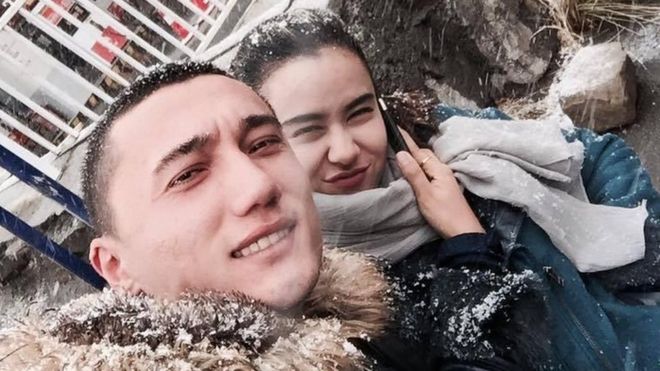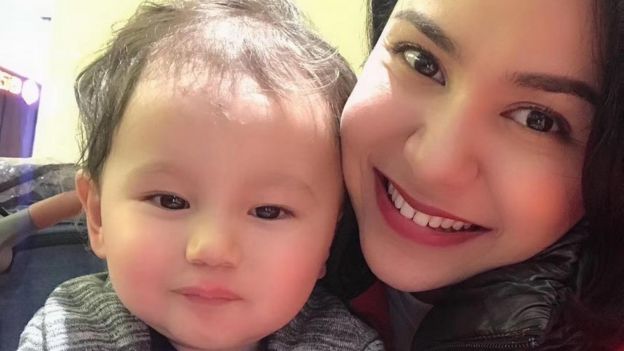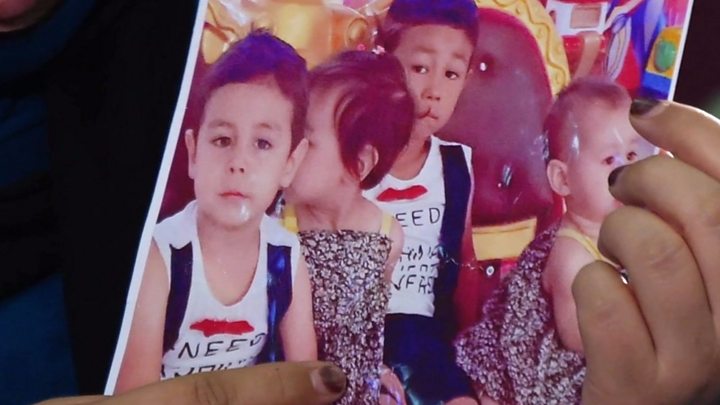- 17 July 2019 https://www.bbc.com/news/world-australia-49013142

The Australian government has called on China to allow an ethnic Uighur mother and son to leave the country, following a public plea from the child’s father.
Rights groups say China is holding about a million Uighurs and other Muslims in detention camps. China says they are “vocational training centres”.
Sadam Abudusalamu, an ethnically Uighur Australian, has called for his wife and toddler son – whom he has never met – to be allowed to join him in Sydney.
China has not commented on the request.
Mr Abudusalamu successfully obtained Australian citizenship for his son Lutfy – who is almost two – earlier this year. Lutfy’s mother, Nadila Wumaier, is a Chinese national.
The 29-year-old man has spent months campaigning to be reunited with his family, but did not reveal his identity until this week – when he gave an interview on public broadcaster ABC.
Since then, Mr Abudusalamu said his wife had been briefly detained and released by Chinese authorities in the far western region of Xinjiang.

On Wednesday, Australian embassy officials in Beijing formally requested that Ms Wumaier and Lutfy be permitted to come to Australia.
Mr Abudusalamu told the BBC he felt positive about Australia’s diplomatic efforts, but “as a father and husband I still need more”.
He said that included his hopes for Australian and Chinese ministers to talk directly, and for Australian officials to be given access to his son in the city of Urumqi.
- Hidden camps: The vanished Uighurs of Xinjiang
- China’s Muslim ‘crackdown’ explained
- China separating Muslim children from families
Before he made his identity public, Mr Abudusalamu said he feared that his son could be placed in state care and adopted by another family if he remained in China.
He and Ms Wumaier were childhood sweethearts who married in Xinjiang in 2016 after he had sought asylum in Australia and spent years living there.
Last week, Australia was among 22 countries who signed a joint lettercriticising China’s treatment of ethnic Uighurs.

The letter cited reports of “large-scale places of detention, as well as widespread surveillance and restrictions, particularly targeting Uighurs and other minorities in Xinjiang”.
China has consistently rejected such allegations and argues it is trying to combat extremism in the region.
Last week UN ambassadors from 37 countries, including North Korea, Russia and Saudi Arabia, released a counter letter defending China policies in Xinjiang.
Australian Foreign Minister Marise Payne said her nation did not have consular access to Ms Wumaier because she was a Chinese citizen.
